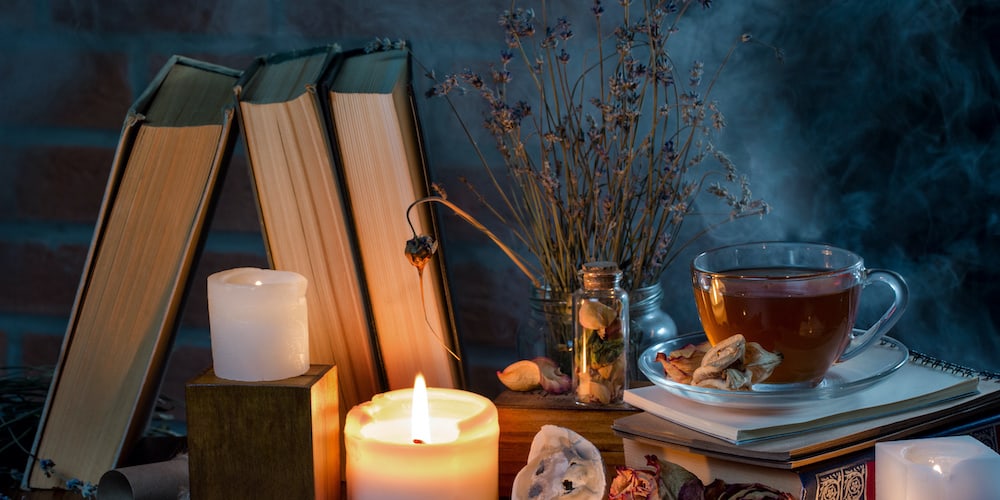The period corresponds to the discharge of blood resulting from the breakdown of the excess uterine lining that thickened throughout the menstrual cycle, in the absence of fertilization.
However, uterine contractions generated by the production of prostaglandins promote the evacuation of this superficial part of the endometrium.
When they occur in excessive quantity, the uterine muscle lacks oxygen because the blood vessels are too compressed: pain in the pelvic region appears. This is called primary dysmenorrhea.
Nevertheless, when the pain appears in adulthood – referred to as secondary dysmenorrhea, it may hide an underlying condition: ovarian cysts, fibroids, or even endometriosis.
To reduce period pain and discomfort, natural solutions are available. Essential oils, a hot water bottle placed on the belly, massages…
But drinking herbal teas has also proven effective!
Read also | The best supplements for periods and PMS according to a pharmacist
1. Chamomile to reduce digestive disorders
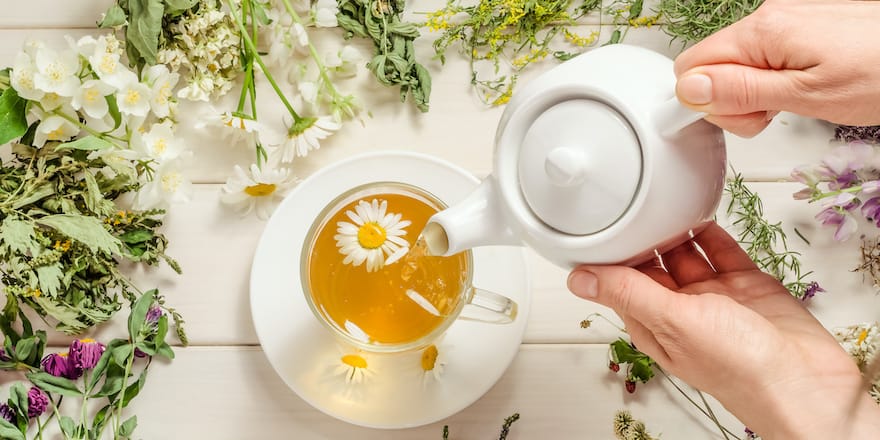
Chamomile (Matricaria recutita) is a plant known for easing digestive disorders. During premenstrual syndrome, and even in the middle of periods, intestinal discomfort is not uncommon.
Moreover, it is also recommended for uterine and digestive cramps due to its richness in flavonoids: it’s killing two birds with one stone!
You can consume three to four cups a day, using 3 grams of chamomile per cup.
2. Lady’s Mantle to calm heavy flows
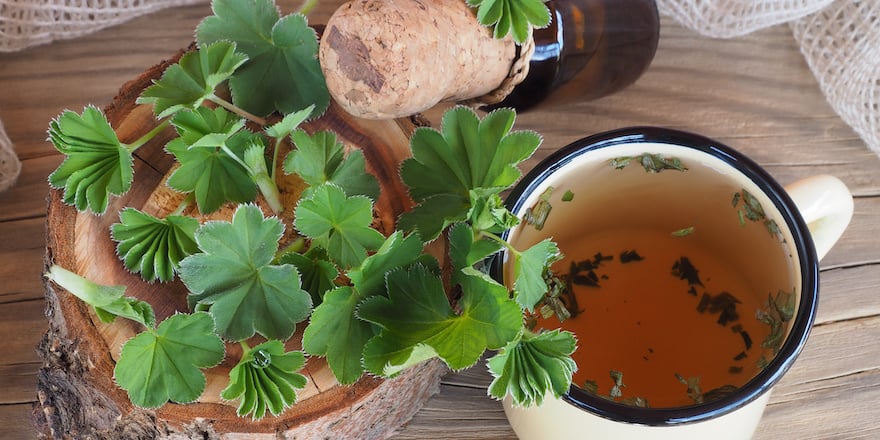
Lady’s mantle, also known as “women’s herb,” has several benefits for women’s health.
It is considered a luteotropic plant: it helps increase progesterone levels at the end of the menstrual cycle when this hormone is decreasing.
By regulating progesterone, lady’s mantle helps calm an overly heavy menstrual flow.
Lady’s mantle also contains anti-inflammatory compounds making it a plant of interest for combating uterine pain.
You can prepare it with 1 tablespoon in a cup of boiling water, after 5 minutes of infusion. Ideally? Take two to three cups a day.
3. Lemon balm to reduce stress during PMS

Lemon balm is a plant renowned for combating stress and anxiety. Its calming and relaxing properties are therefore welcome during premenstrual syndrome.
It also helps soothe cramps associated with periods.
To benefit from its effects, consume it in the form of tea by incorporating 2 teaspoons of leaves into a cup of boiling water, and let steep for about 5 minutes.
4. Yarrow, fennel, and ginger to relieve spasms
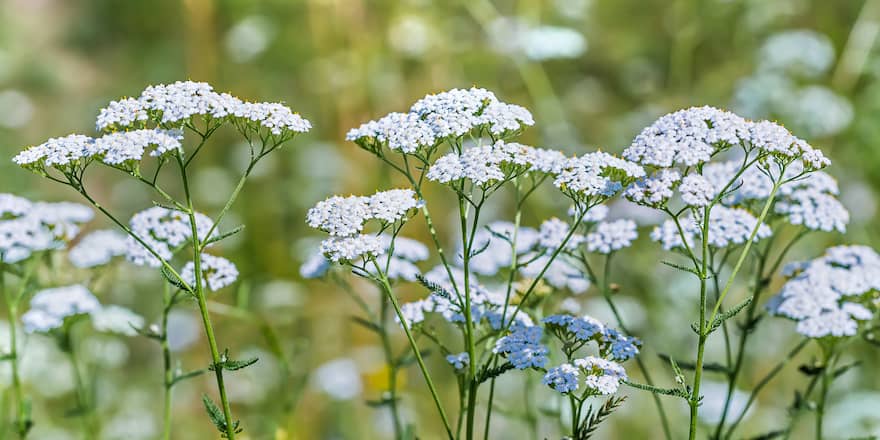
Several plants are recognized for relieving muscle spasms during periods due to the chemical compounds they contain:
- Yarrow, rich in flavonoids and azulene, has antispasmodic, anti-inflammatory, and relaxing properties, making it a good ally
- Ginger (no, it’s not just an aphrodisiac!) also relieves menstrual stomach aches
- Fennel, thanks to the fenchone it contains, which is responsible for reducing spasms
This list is not exhaustive: the other teas mentioned above also have antispasmodic effects, as do teas made from raspberry leaves or clove.
Put a teaspoon of one of these plants in a cup of boiling water and let steep for 5 minutes to enjoy their benefits.
5. Valerian for its calming and sedative properties
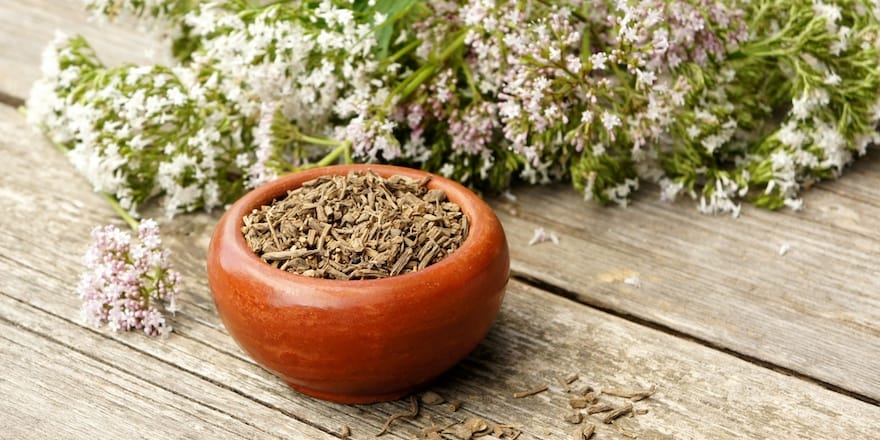
Valerian (Valeriana officinalis), often found in teas that aid sleep, is calming, sedative, and antispasmodic.
If you suffer from uterine pain in the evening, this is the time to consume it: it will soothe your discomfort and help you drift into the arms of Morpheus.
Take a teaspoon of valerian in a cup of boiling water, and let it steep for 5 to 10 minutes.
My tips for relieving menstrual cramps with herbal tea
To make an herbal tea, the preparation method is always similar: let about 3 g of the plant steep for at least 5 minutes in a cup of very hot water.
If the taste doesn’t please you, you can also add a hint of lemon or ginger to make it more pleasant on the palate.
Plants are not to be taken lightly and can be powerful. Take their contraindications into account before using them. If in doubt, consult your doctor.
If your menstrual pain prevents you from performing daily tasks and impacts your quality of life, consult a healthcare professional: it may hide an underlying health issue.
Listen to our podcast | Cherished Cycles: Female Wellness & Nutrition


